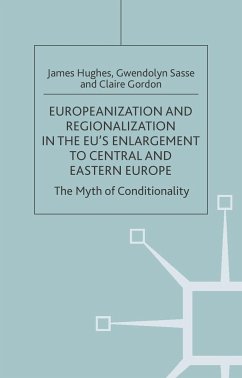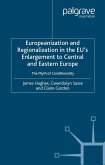This book is a study of EU conditionality and compliance during the enlargement to the Central and Eastern European candidate countries. EU conditionality for membership is widely understood as having been a driving force for Europeanization, providing incentives and sanctions for compliance or non-compliance with EU norms, such as the 'Copenhagen Criteria' and the adoption of the acquis communautaire . By taking regional policy and regionalization as a case study, this book provides a comparative analysis of the effects of conditionality on the Central and East European countries and explores the many paradoxes and weaknesses in the use of EU conditionality over time.
'well-structured and convincing book...at last, I have finally encountered a book that deals with the complexities of European Union conditionality without surrending to the easy depiction of the colonial-type pure power asymmetry which leaves no room for counteractions...this book constitutes one of the most in-depth and best documented studies on not only the standing criteria to comply with and the difficulties of implementation, but also the informal pressures (page 2) which offer a deeper understanding of enlargement process as a dynamic ineraction between institutional incentives and rules and domestic transition factors...the main interest lies in the dynamic research methods of the authors, largely based on a number of very valuable interviews with EU officials and the local and regional elites'. - Cristina Blanco Sio-Lopez - Environment and Planning








